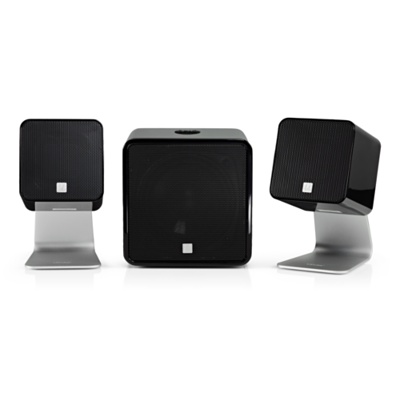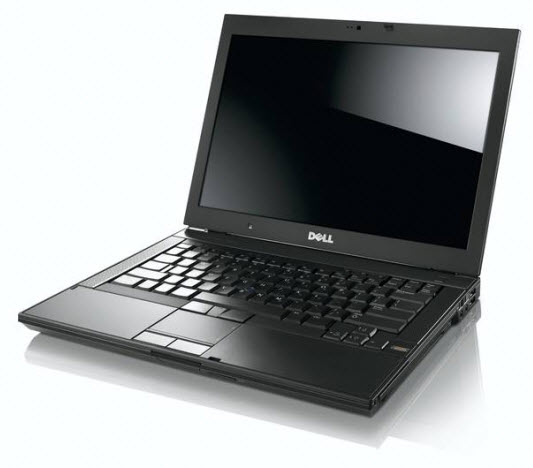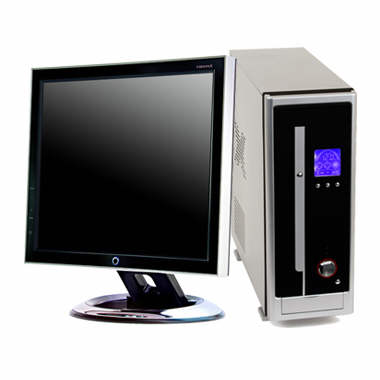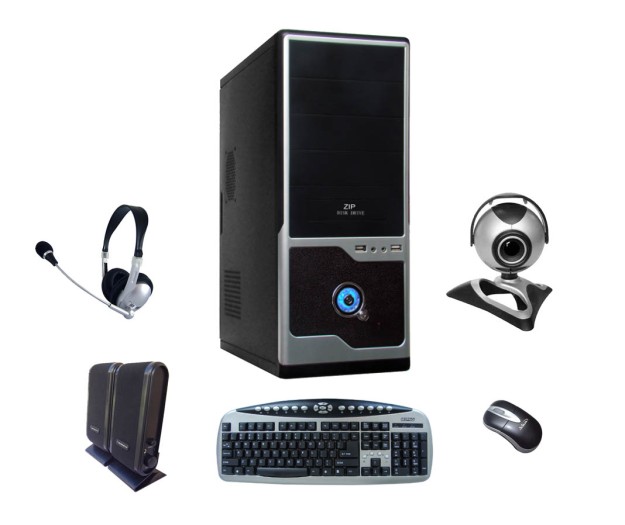Tag Archives: laptop repair
PC Troubleshooting Tips
Nothing can put a damper on productivity quite like a computer that crashes on a regular basis. Sometimes, a crash is preceded by the dreaded “blue screen of death” or another warning; other times, a computer simply shuts off without any warning at all. In either case, the end result is a whole lot of frustration, aggravation and lost work. If your computer has been crashing frequently, you’d probably like to put an end to it. Unfortunately, getting to the bottom of things if often easier said than done. The following tips about improving your computer’s performance, though, are excellent places to begin.
Possibility #1: Corrupted System Registry Files
Every Windows-based PC has something called a Windows registry. The registry contains several files that are integral to the performance and operation of your computer. Over time, some of those files can become corrupted, be misplaced or get lost altogether. When that happens, the system registry becomes compromised – and frequent crashes are all-too-common symptoms. The best way to rule this possibility in or out is by running a Windows registry cleaning program. Such programs scan your Windows registry for problems then automatically make repairs. If you run a registry cleaner and the crashes persist, they are probably being caused by a different issue.
Possibility #2: Disorganized Files
Windows operating systems handle file organization in a way that isn’t very intuitive. Basically, they break files up and fit them into gaps in the computer’s memory. As time goes by, these disorganized files can prompt frequent crashes. Luckily, a great optimization solution is built right into Windows-based PCs: the disk defragmentation utility. Although its location on a computer varies, you can generally locate it within the System and Security section inside the Control Panel. By running a defrag once every few months, you may be able to keep those pesky computer crashes at bay.
Possibility #3: Malicious Software
Malicious software can take many different forms. Sometimes, it’s a virus that is accidentally unleashed after opening a strange email; other times, its adware that tags along with other information that is automatically downloaded from a website. Whatever type it is, there’s no question that malicious software can wreak havoc on a computer’s performance. Happily, there are many topnotch programs out there that regularly scan your computer for the presence of such problems – and that help guard against them, too. Buy one, install it and use it regularly; your crash issues may come to an end.
Possibility #4: Too Little Available Memory
When you buy a new computer, it feels like there’s no end to the amount of memory that it has. Of course, this isn’t true at all. As never-ending as the available memory on your PC may initially seem, the fact is that it can be depleted with incredible speed. You can find out for sure by checking the information within “My Computer.” If it appears that your available memory is low, you can use a PC cleanup program to remove unnecessary files; such programs remove things like temporary Internet files and other file debris that can suck away much-needed memory.
Possibility #5: Overheating
If you’ve run through all of the preceding possibilities and continue experiencing frequent crashes, a hardware issue could be to blame. An easy one to rule out is overheating. A computer’s CPU, or central processing unit, includes a fan that is designed to keep it running cool. Sometimes, the fan wears down and doesn’t work as efficiently; other times, it’s just not able to handle the work that your computer has to do. In either case, buying a bigger, better fan isn’t very expensive. If it puts an end to your PC crashing problem, it will have been more than worth it.
Don’t Put Up with Frequent Crashes!
As discussed, frequent computer crashes can be triggered by a wide variety of issues. Luckily, many of these issues are relatively easy to remedy. Work your way through the preceding list; chances are, you’ll be able to pinpoint the problem and put an effective cure to work. Nine times out of ten, a computer simply needs a little bit of routine maintenance to get it back on track again. In the future, keep these points in mind. Any time you buy a new computer, keep up with its basic maintenance right from the get-go. By doing that, you could avoid “blue screen of death” and crashing problems altogether – and that’s something that you’re bound to appreciate!

We Sell Used Computers and Laptops
Computer Accessories
General Computer Cleaning Tips
Below is a listing of general tips that should be taken when cleaning any of the components or peripherals of a computer as well as tips to help keep a computer clean.
- Never spray or squirt any liquid onto any computer component. If a spray is needed, spray the liquid onto a cloth and then use that cloth to rub down the component.
- You can use a vacuum to suck up dirt, dust, or hair around the computer on the outside case. However, do not use a vacuum for the inside of your computer as it generates a lot of static electricity that can damage the internal components of your computer. If you need to use a vacuum to clean the inside of your computer, use a portable battery powered vacuum designed to do this job or try using compressed air.
- When cleaning a component or the computer, turn it off before cleaning.
- Be cautious when using any cleaning solvents; some individuals may have allergic reactions to chemicals in cleaning solvents and some solvents can even damage the case. Try to always use water or a highly diluted solvent.
- When cleaning, be careful not to accidentally adjust any knobs or controls. In addition, when cleaning the back of the computer, if anything is plugged in, make sure not to disconnect any of the plugs.
- When cleaning fans, especially the smaller fans within a portable computer or laptop it’s suggested that you either hold the fan or place something in-between the fan blades to prevent it from spinning. Spraying compressed air into a fan or cleaning a fan with a vacuum may cause damage or back voltage to be generated.
- Never eat or drink around the computer.
- Limit smoking around the computer.
Although many companies have created products to help improve the process of cleaning your computer and peripherals, users can also use household items to clean their computers and peripherals. Below is a listing of items you may need or want to use while cleaning your computer or computer peripherals.
Keep in mind that some components in your computer may only be able to be cleaned using a product designed for cleaning that component; if this is the case, it will be mentioned in the cleaning tips.
- Cloth – A cloth is the best tool used when rubbing down a component; although paper towels can be used with most hardware, we recommend using a cloth when ever possible. Caution: We only suggest you use a cloth when cleaning components such as the outside of the case, a drive, mouse, etc. You should not use a cloth to clean any circuitry such as the RAM or motherboard since they can generate ESD that can damage electronics.
- Water or rubbing alcohol – When moistening a cloth, it is best to use water or rubbing alcohol. Other solvents may be bad for the plastics used with your computer.
- Portable Vacuum – Sucking the dust, dirt, hair, cigarette particles, and other particles out of a computer can be one of the best methods of cleaning a computer. Over time, these items can restrict the airflow in a computer and cause circuitry to corrode. Do not use a standard vacuum as it can generate a lot of static electricity that can damage your computer.
- Cotton swabs – Cotton swaps moistened with rubbing alcohol or water are excellent tools for wiping hard to reach areas in your keyboard, mouse, and other locations.
- Foam swabs – Whenever possible, it is better to use lint-free swabs such as foam swabs. (source: Computer Hope)
New Chrome Extension Lets You Save Web Content to Google Drive
Google has launched a new extension for Chrome called “Save to Drive,” enabling users to save web content to their Google Drive.
After installing the extension, users will get an additional icon in Chrome, letting them save an image, an entire page or an image of the visible page to your Drive.
Users can also save the HTML source code of a webpage or a complete webpage in web archive (.mht) format. Finally, they can simply right click on web content to save it directly to Drive.
 The extension offers several options to manage saved web content: Users can immediately open the file in Drive, rename it or view it in their Drive list, which provides additional options, such as sharing the file or placing it in a folder.
The extension offers several options to manage saved web content: Users can immediately open the file in Drive, rename it or view it in their Drive list, which provides additional options, such as sharing the file or placing it in a folder.
Google has also added new options for managing the images users store in Drive, including zoom by scrolling, new “fit to page” and “100%” buttons, as well as the ability to comment on a specific part of an image. (source: Mashable)
How to disable or uninstall Java
Java is not a required component for most computer users and with the recent security exploits discovered in Java and Oracle not rushing to fix many of the exploits any time soon many users may choose to disable or uninstall Java on their computer. This document will cover how to update Java, disable Java, and if needed uninstall Java on your computer. Further information on Java including an example Java applet can be found here.
Tip: Before disabling or uninstalling Java make sure it is actually installed and enabled on your computer by using this system information tool.
Desktop Buying Tips
 Purchasing a home or business computer can be a big and sometimes costly decision. Below is a listing of helpful suggestions on what to look for and what to ask when purchasing a new computer.
Purchasing a home or business computer can be a big and sometimes costly decision. Below is a listing of helpful suggestions on what to look for and what to ask when purchasing a new computer.
New vs. refurbished or used
If you’re looking to save money buying a used or refurbished computer can save you a lot of money. A refurbished computer is a computer that has been returned to the company has been checked out as good but cannot be sold again as new. All major computer manufacturers will have a refurbished section showing all their available refurbished products. Buying one of these computers instead of a new computer can save you hundreds of dollars.
In addition to refurbished computers individuals and companies for various reasons will also sell their used computers. When buying these look out for the following.
Verify it has no physical damage by inspecting the ports as well as the inside and the outside of the case.
Make sure you’re getting what you pay for.
Make sure computer comes with any CD’s for the operating systems or programs that are promised to be installed.
Realize that many computer manufacturers will not transfer the computer warranty from the old user to you.
Mac vs. PC
The decision between buying a Macintosh and PC computer running Microsoft Windows is always a heated debate. List of advantages and disadvantages of both of these systems.
What to look for
When purchasing a computer it is likely that you will have a general idea of what you may like in the computer or how you would like to configure the computer. Below is a listing of the various components likely to be found in a computer and recommendations and tips when considering any of the below components.
The case or chassis is often overlooked when buying a new computer. Below are some things to think about regarding the case.
Do you want a desktop or tower case?
Will the case fit on top of or below your desk?
Will the drives be accessible or will they be positioned the way you wish them to be positioned?
Does the case support the standards of motherboards, for example, the ATX motherboard standard? This is important if you wish to upgrade the computer in the future.
CD media
Most newer computers today have an included disc burner in the computer. If you wish to make your own CD’s or DVD’s make sure the computer supports it.
Hard drive
The hard drive will be the destination of all your files and information. Make sure you get a hard disk drive that will have plenty of available space and will run at speeds that don’t slow the overall computer down.
Memory
Memory is one of the more important purchasing decisions on a computer. The more memory in the computer, the more efficient the computer will run.
Modem
Depending on how you plan on connecting to the Internet the Modem may not be that important of a buying decision. Most users today are using broadband Internet, which does not require a modem. However, if this is not available in your area make sure your computer includes a modem.
Network card
Almost all computers today have a network card or network option on the motherboard. The network card is what will allow you to share files between computers in your home and connect to a broadband Internet connection.
Processor
The computer processor is and will always be one of the most important considerations when purchasing a computer. Today, with multiple CPU/Processor manufacturers, it may be more confusing as well as more cost efficient to look at all options for computer processors.
Sound card
Today, the standard sound cards that are included with a computer are sufficient for almost all computer users. However, if you plan on doing sound editing or mixing make sure to look at the sound cards capabilities.
Video card
For computer gaming the video card has become one of the most important factors behind memory and processor. If you plan on gaming with your computer make sure your video card GPU and video memory meets the requirements.
source: http://www.computerhope.com/btips/desktop.htm




